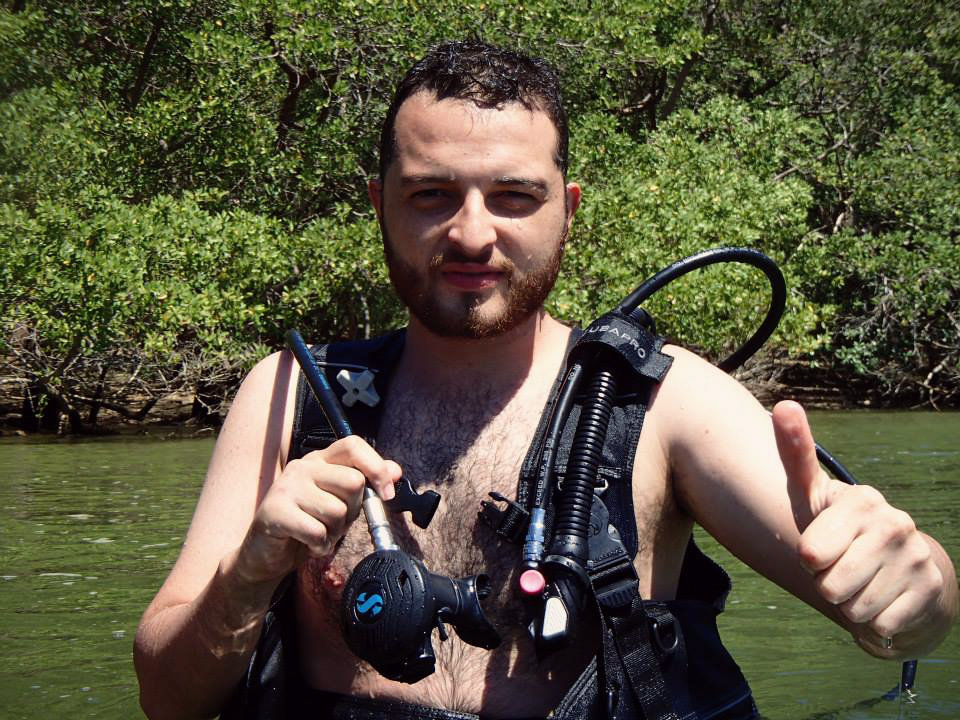’Sharing is not a crime’: Why a Colombian student faces prison for posting research online

TakePart.com | 29 July 2014
’Sharing is not a crime’: Why a Colombian student faces prison for posting research online
The case of biologist Diego Gomez has its origins in a 2006 free trade deal—and it echoes the fate of Aaron Swartz.
By Joseph Williams
A South American biologist who found a five-year-old master’s degree thesis online, then shared it with fellow graduate students on a Web page, could spend the next eight years in prison for copyright infringement.
In a case that pits Internet freedom against intellectual property rights, Diego Gomez is accused of breaking the law even though he used the paper for research, didn’t try to sell it, and didn’t claim credit for the work. But the paper’s author claims Gomez, 26, illegally obtained and distributed his work product, violating copyright laws embedded in a 2006 trade deal Colombia signed with the United States.
The case against Gomez, who is studying ways to preserve his country’s vast, diverse ecosystem, has become a rallying cry for international activists, including recently formed free-Internet advocacy groups in Colombia. But Maira Sutton, a global policy analyst for the Electronic Frontier Foundation, a free-Internet advocacy group, believes he is among a growing number of students, researchers, and ordinary Internet users around the world ensnared by laws designed with big business in mind.
“That’s the thing about copyright law—it sort of pulls in all sorts of uses of work” that typically weren’t subject to legal protection, said Sutton. The new laws, she said, consider a broad range of activities to be violations—from bootleg videos of Hollywood movies to e-book recordings for the blind.
Gomez’s case echoes that of Aaron Swartz, the computer prodigy and free-Internet hacktivist who killed himself last year amid a heavy-handed federal investigation.
Though Swartz said it was a protest of copyright laws, federal prosecutors aggressively pursued the case against him, apparently looking to make him an example. Swartz, however, killed himself before the case proceeded. Like Gomez, Swartz was 26.
In an open letter about his plight, Gomez, who studies reptiles and amphibians, said he never intended to plagiarize or profit from the works he downloaded three years ago.
“I came across...a master’s thesis that was crucial to identify some amphibians I found in my field visits to some protected areas in the country,” he wrote in the online letter. “To access this information, it was necessary to travel to a library in Bogotá. At that time, however, I thought it was something that could be of interest for other groups, so I shared it on the web” by posting it on a Facebook users’ group page for biology students.
Even though the research was already online—and Gomez wasn’t the only one to download it—the author filed a complaint with authorities for “violation of economic rights and related rights,” Gomez wrote. “I was told that this could result in [a] jail sentence of 4 to 8 years.”
Gomez insists he didn’t intend to break the law; for a student like him in a small university in a developing nation, he explains, Internet access is sometimes a luxury—and when he does get online, paywalls often stand between him and crucial information he and others need for their research.
Unlike Swartz, who courted publicity in the United States to raise awareness of the issue, Gomez didn’t intend to become the newest poster child for Internet freedom. Sutton, however, said she’s glad he decided not to stay silent.
“It’s hard to find these cases” even though they’re likely on the rise, Sutton said. “It’s hard to find people who want to speak out and advocate for reforming the system.”
Although Gomez has several new free-Internet groups in Colombia defending him, “a lot of [alleged copyright violators] are left on their own to defend themselves,” she added. “Many of them—their stories are not told.”
Though cyber-activists around the world have rallied to his defense, publicized his case, and pressured the Colombian government, Gomez still may end up in prison for a substantial amount of time. He acknowledged as much in his essay—and questioned the idea that what he did was wrong.
“Sharing,” he wrote, “is not a crime.”
A veteran journalist and former White House correspondent for ’Politico,’ Joseph Williams is a freelance writer, blogger, and essayist in Washington, D.C.
Read more and support Diego: http://www.karisma.org.co/compartirnoesdelito/?cat=7





